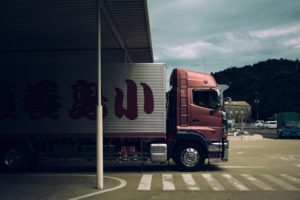 Truck operators are navigating an increasingly complex and confusing regulatory environment as political momentum to address air pollution in cities gathers pace, says a new analysis from Transport Intelligence (Ti).
Truck operators are navigating an increasingly complex and confusing regulatory environment as political momentum to address air pollution in cities gathers pace, says a new analysis from Transport Intelligence (Ti).
The report observed: “Diesel emissions are regarded as a primary source of pollutants and have been blamed for the premature deaths of 3m people a year… This has led an increasing number of city authorities to place controls on, and even ban, types of diesel engine vehicles.”
As a result, transport and logistics companies now face a raft of new restrictions affecting their delivery operations, said Ti, a leading global logistics market research service.
“There is very little consistency of regulations, even often within the same country, and this provides a complex and confusing framework within which to work,” continued the report.
Restrictions are often imposed based on:
- The category of diesel engine permitted to enter a regulated ‘low emissions zone’. The EU, US and China have their own categorizations of engine efficiency, albeit roughly aligned
- Minimum requirements for the engine efficiency of new trucks
- Delivery times
- Routing schemes which regulate when and where goods vehicles can go
- Specified loading/off-loading zones
- Weight and size
- Arbitrary day bans on vehicles (such as odd/even number plate measures).
The analysis said the complexity of the environment in which truck operators have to operate is exemplified by the disparity of regulations in Europe where it might be thought that a standardized approach to the issue would exist.
It noted that Paris bans trucks which are not Euro V engine or later and all diesel vehicles will be banned from 2024. Germany has empowered towns and cities to place bans on different types of diesel-engined vehicles. Italy has no national framework, and cities set their own standards. Madrid and Barcelona in Spain have low emissions zones but with different restrictions. London has no bans but charges fees for non-compliant diesel trucks to enter restricted areas.
Even the way in which programs work vary from city to city. Some employ a colored sticker scheme, others are more technologically advanced using automatic number plate recognition. Some cities allow many exemptions to the regulations, others many less.
“Of course, countries in Asia and in the Americas have even more diverse controls and levels of restriction on diesel trucks,” said the report.
“The plethora of restrictions which apply to trucks across markets around the world is highly confusing to operators and, of course, to truck manufacturers,” it continued.
“Complete bans on diesel engines rely on there being alternative solutions to the delivery of goods to inner city areas and for this to occur there has to be considerable progress in the development of alternative fuels. But despite all the hype, a world without diesel is many years off.”
Photo by Kendall Henderson
